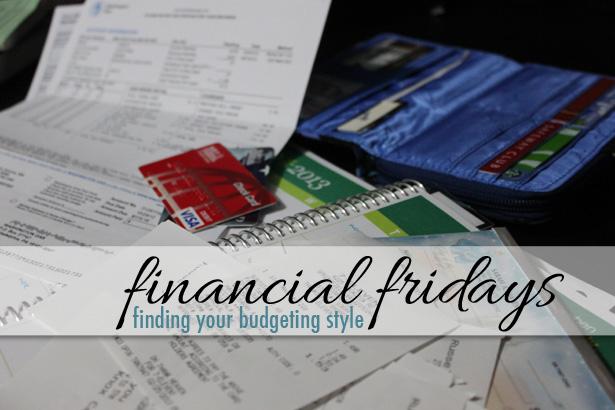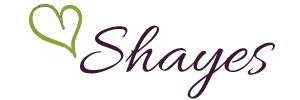 << Using a Budget in Real Time | Coming Soon! >>
<< Using a Budget in Real Time | Coming Soon! >>
So now that we know a little bit more about how to set up a budget and get it to work there's something else we need to discuss: your budgeting style.
Taking into consideration a few things like how you think, your organizational style, your lifestyle, etc. are incredibly important to making sure that budget you set up actually works for you and how you live and think.
A Style All Your Own
If you went to school (which I'm guessing you did), chances are, at some point during your educational career, somebody talked to you about learning styles.
The long and short of it is, everybody learns and retains information differently. Some people are audio learners -- they learn best by listening to a lecture or an audio recording, essentially by listening to something. Other people are visual learns -- they learn best by reading the information themselves or watching a demonstration, by seeing something. Others are physical learners -- they have to be physically doing something, be it writing or practical application, to help them retain the information, by doing something.
There are all sorts of combinations of these different types of learners and probably more than the ones I've listed, but the point is essentially everybody learns and retains information in different ways.
The same goes for budgeting. Budgeting is not a one-size-fits-all scenario.
Yes, a budget is important for everyone because no matter how good you think you're being, things like saving for retirement and even just saving up for a new laptop take planning and time. The money isn't just going to magically appear in your bank account if you don't make it go there and no matter how frugal you think you're being, the chances of you thinking "where did all my money go?" at the end of each month are much higher if you're not paying attention to where the money is going, much less actually telling it where you want it to go.
That being said, what might be best for me when budgeting might not be best for you.
So the question is...what is your budgeting style?
Well, like many other things in life, your budgeting style is largely based on your personality. Those who are hyper-organized generally have a very different approach to budgeting than those who are less organized and, similarly, those who have a fairly slow and calm lifestyle generally have a different approach to budgeting than those who are constantly in GO!GO!GO! mode.
The most important thing when considering how to structure your budget is not how other people will view your budget or even what other people recommend. It's what works for you. The opinions and suggestions of others won't make a lick of difference if that's not how your brain functions or it doesn't fit into your lifestyle.
The first question to ask when figuring out the best way to keep track of your budget is are you a paper and pen person or an electronic person?
With the continual increases in technology, keeping track of your money electronically is now easier than ever before, but some people that just doesn't work the best.
I have an iPhone, so I have a calendar app on my phone (as does pretty much everyone else with a smartphone). My mom and many of my friends use this calendar app to keep track of appointments, to-do lists, and assignments. That's all fine and dandy for them, but I've found that I'm much more likely to keep track of when I need to be where, what I need to do, and generally what is going on in my life if I write it down in a physical planner.
A lot of people think it's a bit old-fashioned, that I'm killing trees, all that jazz, but I'm much more likely to remember a writing project or a meeting with someone if I write it down by hand than if I put it into the calendar app on my iPhone.
For some people, this is how budgeting works for them. Yes, it would be really easy to put all of their purchases into a computer program like Quicken or an online program like Mint, but that's not how their brain functions. But for me, even though writing down all my appointments helps me remember them better, keeping track of my money online is much better because then I don't have to worry about making any mathematical errors that result in a major discrepancy.
Keeping It Old School
If you're a paper person, then there's a couple of different ways you can go about setting up your budget.
One option is to buy a financial record book from a place like Office Depot, Staples, or Barnes & Noble. There are a couple of different varieties, but it's best if you find one that gives you the option to record all of your different categories on one page and then keep an individual record of the individual transactions within each category.
Another option is to create your own spreadsheet in Microsoft Excel and print it out each month. It doesn't have to be complicated. In fact, they can be very similar to the ledger books you purchase at a store. You just need to record enough information so that you know how much money you have overall and how much money you have in your individual categories.
For both options, you can just keep the main notebook and record your transactions on a designated day, be it every single day or at the end of each week. If you choose this option, then it's probably best to keep all of your receipts -- both for cash and for credit/debit transactions -- to make sure you know exactly where every dollar goes.
If you want to keep track of the transactions in real time to make sure you don't forget any of them, then you can keep a small notebook with you and jot down where you made the purchase, how much it cost, and what category it falls under as soon as it happens. That way, when you go back to the main notebook, you can be positive you didn't miss any transactions and end up with a discrepancy.
Bringing It Into the 21st Century
If you're an electronic person, then there's more than a couple of different ways to go about keeping track of your finances and which one you choose will depend largely on other aspects of your personality.
If you're like me and are constantly on the go, the having some sort of financial management software that also has a mobile app is imperative, but for someone who has a slower, more calm lifestyle, financial software that is only accessible on your computer may work perfectly fine.
The big question is do you have the time (and preference) to record your transactions in big chunks, like at the end of each week? Or do you have the time to sit down at your computer every single day and reconcile your bank account? If not, then using some sort of financial management program with a mobile presence is probably your best option because this allows you to record your transactions instantly.
Did you stop at Starbucks to get a drink on the way to work? While you're waiting for your drink to come up on the bar, you can open up your mobile app and immediately record what you purchased, how much it cost, and where it was purchased. Then, a couple of days later when it comes through on your bank account, the money is already accounted for.
This is especially helpful to make sure you don't overdraw your checking account. It would be easy to look at your online account and see that you have $300 in your account or $20 in a specific category, but if you haven't recorded your transactions for that week, you may only have $100 in your account and already spent more than your designated $20 in a specific category. Recording the transactions in real time can be very helpful in making sure you don't overspend in a singular category or on the whole.
Fortunately, with the increase in smart phone and tablet usage in recent years, mobile apps have become much more commonplace among financial institutions and online based financial management programs have become more prevalent. It's almost a guarantee that your financial institution has some sort of mobile banking app and there's a large number of financial management programs that are online based and have mobile apps for both iPhone and Android.
Next time, we'll continue to discuss the specifics of a few online financial management programs along with more of the benefits (and potential drawbacks) to recording your transactions in real time.
What kind of budgeting do you think works best for you? Have you found that writing it down works best or keeping track of it electronically is better?
 Got a money question you'd like me to answer? Send an email to
shadesofshayes[at]gmail[dot]com with "Financial Fridays" in the subject
line.
----------
Like what you're reading? Consider liking me on Facebook or following me on Twitter!
The post Financial Fridays: Finding Your Budgeting Style appeared first on Shades of Shayes.
Got a money question you'd like me to answer? Send an email to
shadesofshayes[at]gmail[dot]com with "Financial Fridays" in the subject
line.
----------
Like what you're reading? Consider liking me on Facebook or following me on Twitter!
The post Financial Fridays: Finding Your Budgeting Style appeared first on Shades of Shayes.
